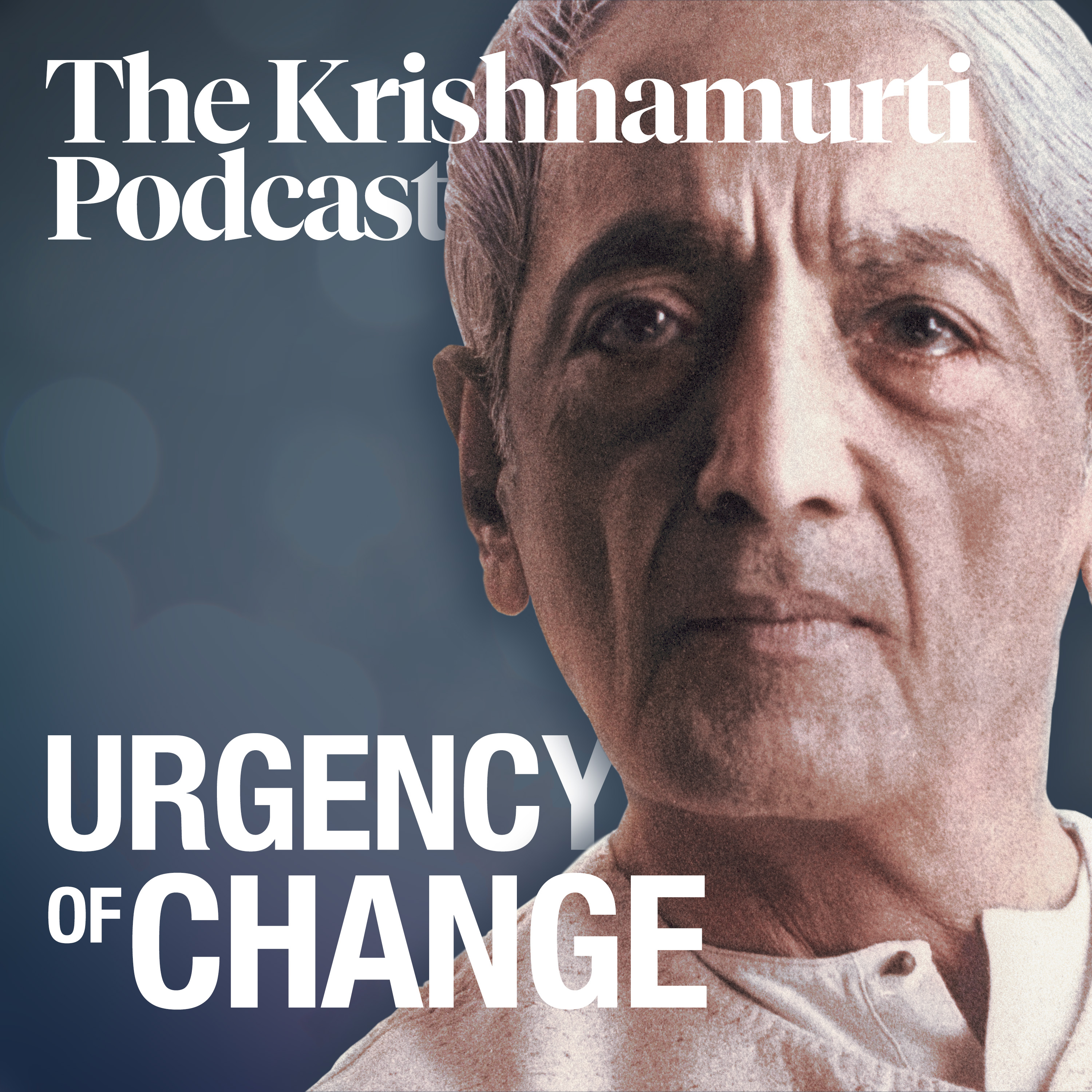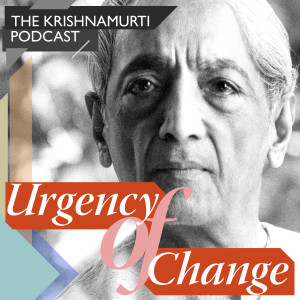
What are you doing with your life? Can anyone show you the way, or must you be a light to yourself? Do we see the urgency of change? One of the greatest spiritual teachers and philosophers of all time, J. Krishnamurti challenges us to question all that we know and discover our true nature in the here and now. This official podcast from Krishnamurti Foundation Trust now has over 250 episodes. Episodes 1-50 feature conversations between Krishnamurti and luminaries from many paths, along with readings of the classic book Commentaries on Living by actor Terence Stamp. Episode 51 onwards features carefully chosen extracts based on a theme explored by Krishnamurti. The extracts from our archives have been carefully selected to represent his different approaches to each of these universal and timelessly relevant themes. Get in touch at podcast@kfoundation.org. Please consider leaving a review, which helps the visibility of the podcast.
Episodes

Friday Jan 17, 2020
Second conversation with Alain Naudé – On good and evil
Friday Jan 17, 2020
Friday Jan 17, 2020
Alain Naude was Krishnamurti’s private secretary in the 1960s. He met Krishnamurti in 1963 whilst a music lecturer at Pretoria University and a professional concert pianist. He gave up his teaching and performing in 1964 to work with Krishnamurti. Fluent in several languages, he was very helpful at international gatherings and in attracting younger audiences to Krishnamurti’s talks at a time of cultural change in the West.
This second conversation between Naude and Krishnamurti opens with the question: Do good and evil really exist or are they simply conditioned points of view? The inquiry looks at goodness as total order, not only outwardly but inwardly especially. Is virtue the outcome of planning? You cannot will to do good. Either you are good or not good. Will is the concentration of thought as resistance. Are poisonous snakes, sharks and the cruel things in nature evil? The moment we assert that there is absolute evil, that assertion is the denial of the good. Goodness implies total abnegation of the self, because ‘the me’ is always separative. Order means behaviour in freedom. Freedom means love. When one sees all this very clearly there is a marvellous sense of absolute order.
Find us online at kfoundation.org and on social media as Krishnamurti Foundation Trust

No comments yet. Be the first to say something!